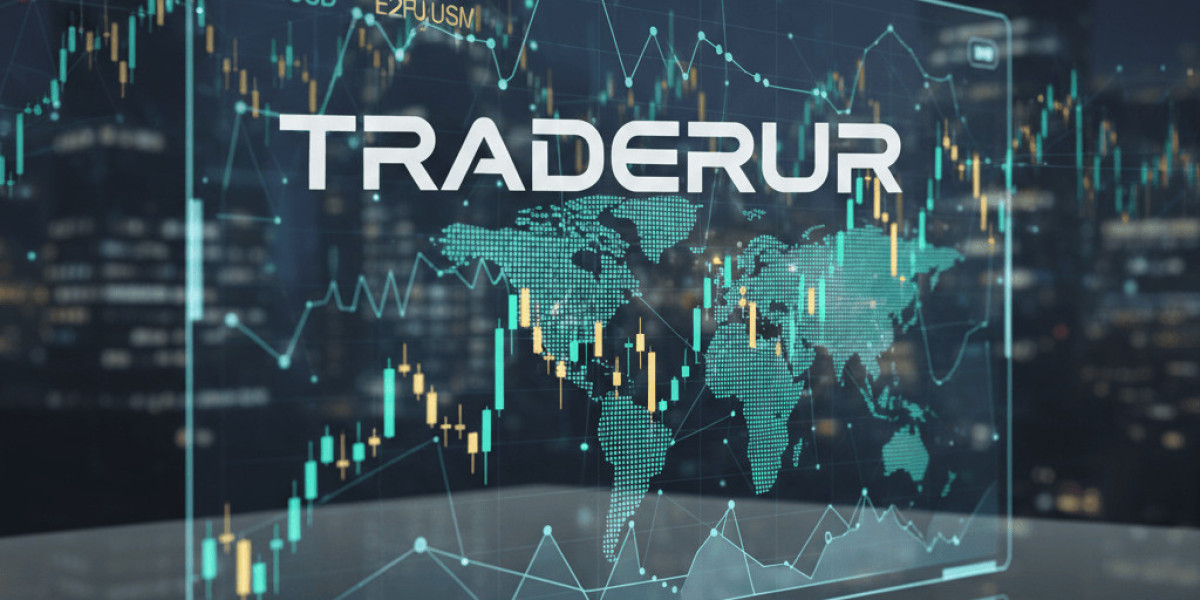Introduction
Choosing the right trading broker can make or break your trading journey. With hundreds of online brokers available, it’s often confusing to know which one is trustworthy, cost-effective, and suited to your needs. One name that has been getting attention is TraderUR, a broker that offers access to forex, CFDs, commodities, indices, and even cryptocurrencies.But is TraderUR truly worth your time and money in 2025? In this review, we’ll explore its features, pros, and potential drawbacks. We’ll also compare it with other established brokers such as FP Markets, IC Markets, Octa, Eightcap, and Tickmill to help you make an informed decision.
What is TraderUR?
TraderUR is an online brokerage platform that provides retail traders with opportunities in global financial markets. It is designed to cater to both beginners and advanced traders by offering multiple account types, educational tools, and a wide range of trading instruments.
Like many modern brokers, TraderUR emphasizes accessibility—offering web-based and mobile platforms to allow traders to stay connected from anywhere.
Key Features of TraderUR
Trading Instruments
TraderUR provides access to:
- Forex – Major, minor, and exotic currency pairs.
- Commodities – Gold, silver, oil, and agricultural products.
- Indices & Stocks – Popular indices like S&P 500 and individual equities.
- Cryptocurrency CFDs – Bitcoin, Ethereum, and others.
When compared with brokers like Octa and FP Markets, the variety is competitive. Octa focuses mainly on forex and CFDs, while FP Markets provides a strong mix similar to TraderUR.
Trading Platforms
TraderUR uses a proprietary web-based trading platform with mobile access. It is simple to use, making it appealing for beginners. However, professional traders might miss the flexibility of MetaTrader 4 or MetaTrader 5, which are offered by most leading brokers.
For example, Tickmill and IC Markets both offer MT4/MT5, which support advanced charting, indicators, and automated trading.
Account Types
TraderUR offers tiered account structures: Basic, Silver, Gold, Platinum, and VIP. Each level unlocks new benefits such as tighter spreads, personal account managers, and higher leverage.
This is different from brokers like Eightcap, which keep accounts simple (Standard & Raw Spread). TraderUR’s tiered system might appeal to traders who like to “upgrade” as they grow.
Spreads and Fees
- Spreads: TraderUR offers spreads that are slightly higher than the industry average. For example, EUR/USD spreads can be 1.5–2.0 pips.
- Commissions: Generally included in spreads for lower-tier accounts.
- Hidden Fees: None reported, but inactivity fees may apply.
In comparison, IC Markets is a leader in tight spreads, often as low as 0.0–0.1 pips on ECN accounts. This means cost-conscious scalpers might prefer IC Markets over TraderUR.
Deposit & Withdrawal Options
TraderUR supports multiple payment methods:
- Bank transfers
- Credit/debit cards
- E-wallets
- Cryptocurrency deposits
Processing times are generally within 24–72 hours. FP Markets, however, is known for faster withdrawals, sometimes within the same day.
Pros and Cons of TraderUR
Pros
- Wide range of trading instruments (forex, CFDs, crypto).
- Multiple account types for different trading levels.
- Easy-to-use web and mobile platforms.
- Secure payment options.
- Educational resources for beginners.
Cons
- Spreads are higher than IC Markets or Eightcap.
- Limited platform options (no MT4/MT5).
- Regulatory clarity could be improved.
Is TraderUR Safe and Regulated?
Safety is one of the first things traders check when choosing a broker. While TraderUR offers security features like SSL encryption, its regulatory status is not as strong as brokers like Eightcap (ASIC-regulated) or Tickmill (FCA-regulated).
This doesn’t mean TraderUR is unsafe, but regulation adds a layer of protection that seasoned traders prefer.
How TraderUR Compares with Other Brokers
TraderUR vs FP Markets
- FP Markets: Strong ECN pricing, very tight spreads.
- TraderUR: Broader account tier options.
TraderUR vs IC Markets
- IC Markets: Ultra-low spreads, best for scalping.
- TraderUR: Beginner-friendly with more account support.
TraderUR vs Octa
- Octa: Offers MT4/MT5, swap-free options.
- TraderUR: More focus on structured account progression.
TraderUR vs Eightcap
- Eightcap: ASIC-regulated, raw spreads, MT4/MT5.
- TraderUR: Easier deposits/withdrawals and broader account tiers.
TraderUR vs Tickmill
- Tickmill: Highly regulated, competitive spreads.
- TraderUR: More asset coverage, easier onboarding for new traders.
Who Should Use TraderUR?
TraderUR is best suited for:
- Beginners who want an easy-to-navigate trading experience.
- Intermediate traders who like upgrading accounts with more benefits.
- Investors who want exposure to multiple markets, including crypto and stocks.
If you are a scalper or algorithmic trader, IC Markets or Eightcap may serve you better.
Final Verdict – Is TraderUR Worth It in 2025?
TraderUR has positioned itself as a well-rounded broker for retail traders, especially those starting out. Its strengths are wide asset coverage, flexible account types, and user-friendly platforms.However, spreads are higher than top-tier ECN brokers like IC Markets, and the lack of MT4/MT5 might disappoint advanced traders. The regulatory question mark also makes it less appealing compared to Eightcap or Tickmill, which are strictly regulated.
Verdict: TraderUR is worth considering for beginners and intermediate traders, but professionals may prefer brokers with stronger regulation and lower trading costs.
FAQs about TraderUR
Q1: Is TraderUR regulated?
TraderUR provides basic security features, but it lacks the strong regulation seen with ASIC or FCA brokers.
Q2: What assets can I trade on TraderUR?
Forex, stocks, indices, commodities, and cryptocurrencies.
Q3: How does TraderUR compare to IC Markets?
IC Markets is better for low-cost trading and scalping, while TraderUR is more beginner-friendly.
Q4: Is TraderUR good for beginners?
Yes, thanks to its educational tools, simple platform, and account variety.
Q5: How long do withdrawals take?
Withdrawals are typically processed within 24–72 hours.

